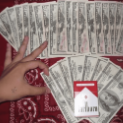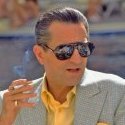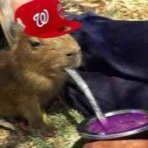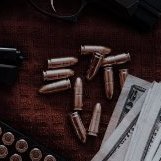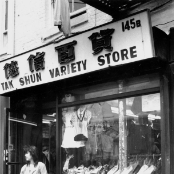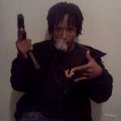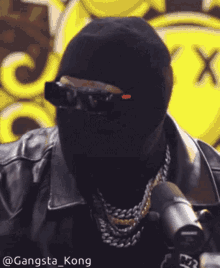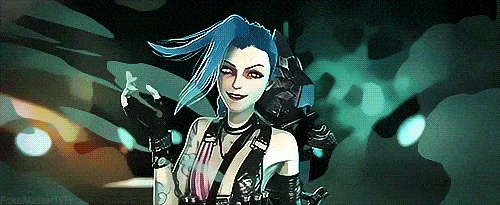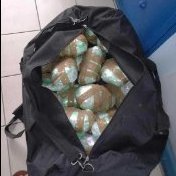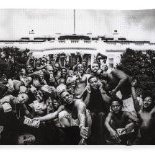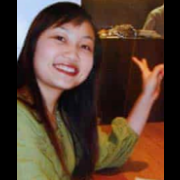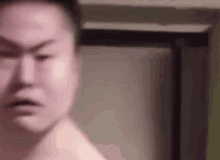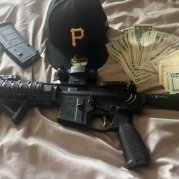Search the Community
Showing results for tags 'chinese-american'.
-
- 49 replies
-
- 11
-

-
- transatlantic shipping
- chinese-american
-
(and 2 more)
Tagged with:
-
Thread follows life & development of Joel Quyen.
- 6 replies
-
- 2
-

-

-
- chinese-american
- asian
-
(and 3 more)
Tagged with:
-
"Sammy" (黃) "Sammy" was born and raised in Los Santos to parents who immigrated from Guangdong, China in the 1980s. Unlike his parents, who worked hard to provide a better life for their family, Sammy grew up in poverty, surrounded by the struggles of urban life. As a child, Sammy often went hungry and lacked access to basic necessities. Despite these challenges, he was determined to succeed and was always eager to learn. He was especially interested in his family's cultural history and would spend hours in the library reading about the rich traditions and customs of his ancestors. As he grew older, Sammy faced even greater challenges. Despite his intelligence and drive, he struggled to find work that paid a living wage. He was forced to take on multiple low-paying jobs just to make ends meet. Despite these hardships, he never lost sight of his dream of improving his life and the lives of others in his community.
-
The Chinatown Collective 唐人街集體 The Chinatown Collective is a predominantly Chinese (Hong Kong) organised crime group consisting of second and third generation Chinese-Americans with loose connections to the city of Hong Kong. It is a secretive and well established organisation that puts up a legal facade to the public eye through the use of the Chinese American Association, the organisation’s legal front, while operating behind the scenes on a deeper criminal level. In recent years the group has been forced to adapt as a result of the city's ever harsher crackdowns on organised crime, shedding its old name and structure in order to survive. While the main figureheads of the group operate in complete secrecy however they utilise a street gang in order to maintain a presence on the streets of Chinatown. The organisation as a whole is responsible for the smuggling of arms and drugs, extortion, prostitution, human trafficking, gambling and other white-collar and violent crime. The organisation has a steep hierarchy, with the most senior and experienced members holding the most authority in the group. Traditional Chinese values such as respect, loyalty and honesty are seen as vital components to the organisation’s success. Chinatowns Chinatowns are ethnic Chinese enclaves located outside of mainland China, particularly common in the USA, the first Chinese to arrive in the U.S came through New York in the early 1800s as tea and porcelain merchants, but it wasn’t until the San Andreas gold-rush of the mid-1800s that thousands of Chinese migrants, mostly from the Guangdong Province started entering the country at the prospect of making their fortune, working in scattered mines across the state. Chinese migrants also proved instrumental in the construction of the central pacific and transcontinental railroads. The Chinese migrants found life challenging in their new home, as is the case with all migrants, even as San Andreas became a hub of Chinese culture in the U.S. A lot of the newly arrived Chinese migrants worked to send money back to their families back home, as well as pay off any debts to the Chinese-American merchants that sponsored their passage across the pacific to America, these financial pressures meant that many Chinese migrants had to accept work at reduced wages, work longer hours with fewer days off. Discrimination was common, causing areas dubbed ‘Chinatown’ to become increasingly more segregated and concentrated. Because of this, it wasn’t uncommon for Chinese migrants to band together as a community as a response to anti-Chinese motivated attacks, these communities often turned to crime in order to better sustain themselves, the Los Santos Chinatown is no different. The Chinese American Association of Los Santos The Chinese American Association is a non-profit organisation that exists to provide the impoverished youth of Chinatown with local job opportunities, host community-ran events and cultural celebrations, as well as providing financial aid to local businesses in the area. Behind the scenes though, the association is merely the legal front of the group, serving as the puppet organisation in which the collective can legitimise a lot of its criminal activities. OOC Information The Chinatown Collective aims to portray a realistic approach to a unique Chinese organised crime group based in Chinatown. Above everything, we emphasise character development & authentic scenes to occur within & outside of the organisation. Coming into the faction, your expectations should be that everything must be treated strictly in-game. At any time your character may be insulted, assaulted, or even killed. Recruitment & progression will be all IC and may take a while or short time depending on interactions with your character. Characters looking to get involved with the faction should be impoverished, young Chinese-Americans, although we’re not against recruiting those of other east-Asian ethnic origins, such as Vietnamese, Taiwanese, Cambodian, Filipino, Malaysian, Singaporean, and Indonesian. Our faction is open to both illegal and legal characters, or simply a mix of both. For more information on the faction, please do not hesitate to message zytum#0001 or kwayback#0001
- 2,177 replies
-
- 56
-

-

-

-
- organized street gang
- chinese-american
-
(and 2 more)
Tagged with:
-
- 22 replies
-
- 2
-

-

-
- chinese oc
- chinese-american
-
(and 1 more)
Tagged with:
-
This thread will follow the development of Daniel 'Toker' Ma, an active Dai Lo of the Decker-Side 23 gang.
- 41 replies
-
- 31
-

-
- chinese-american
- wah ching
-
(and 2 more)
Tagged with:
-
- 1 reply
-
- chinese-american
- chinese organized crime
-
(and 4 more)
Tagged with:
-
DECKER-SIDE 213 Although they were not the first, the advent of mass Chinese immigration into the United States and the West Coast would come with the 1849 San Andreas Gold Rush. They worked in the state’s booming gold mines, and later took on agricultural and fishing jobs, factory work - especially in San Andreas’ garment making industry - and most prominently, helped to construct the Central Pacific portion of the first Transcontinental Railroad. These Chinese migrants primarily came from a small area of eight districts to the west side of the Pearl River Delta in Guangdong. The chauvinistic discrimination they faced, ranging from cultural and economic tensions to blatant ethnic persecution, as well as laws passed in order to restrict their immigration and rights, necessitated and helped strengthen traditional Chinese collectivist values. This, and the culture shock of being across the Pacific, caused the springing up of predominantly Chinese areas across San Andreas; Chinatowns. Within these Chinatowns, respectable Chinese merchants, among the most prominent members of the community at the time, made the first efforts to band together and form a network of social and welfare organisations; known in Chinese as kongsi. They were organised based on clan and district lines. Some of the more prestigious of these groups banded together to form the Chinese Six Companies, later known as the CCBA, or Chinese Consolidated Benevolent Association. Although many Chinese immigrants were affiliated with it, the minority who didn’t - outcasts, those who lacked clan or notable family ties - organised themselves into secret societies known as tongs. The Suey Sing was one of these tongs. It claimed descent from the Hung Mun, a Chinese secret society erroneously referred to as the Chinese Freemasons. They began in the 17th century as a social and political movement to overthrow the newly ascendant Qing dynasty, although aggressive persecution by the ruling authorities drove these societies underground, causing them to adopt secretive customs, rules, ceremonies and operating procedures. The Hung Mun members who emigrated over the Pacific brought these customs with them to the Tongs, seeing as they lacked the necessary credentials and status for membership of the Six Companies. The initial members of the Suey Sing and other Tongs were marginalised, poor, and lacked the opportunities accessible to wealthier Chinese immigrants. They lacked any clear social or political motives, soon finding themselves involved in lucrative criminal activities such as extortion, people smuggling, kidnapping, gambling, murder and prostitution. There were constant feuds and wars between the Tongs over territory, power, and profit - lasting from the 1850s right up until the 1920s, known as the Tong Wars. The Suey Sing, concentrated in its founding location of San Fierro, fervently participated in conflict with rival tongs such as the Hop Sing and Bing Kong. However, growing Chinese community opposition to the tongs, law enforcement crackdowns, and most prominently of all, the 1906 San Fierro earthquake, would be the death knell of the warring tongs. It killed over three thousand people and devastated Chinatown, destroying many businesses, brothels and gambling houses; income that the Tongs had relied on. Following the upheaval, a coerced Peace Committee organised by Inspector Jack Manion of the Chinatown squad forced the last six tongs to call off the raging violence. They began to rebrand themselves as legitimate benevolent groups, and in 1920, the Suey Sing rebranded itself as the Suey Sing Association. Recovery from the devastation was slow, and many of the Tongs withered away with the Old Chinatown. The Suey Sing, however, endured, instead merely beginning to obfuscate its criminal activities whilst remaining a dormant presence in San Fierro’s Chinatown. The second wave of Chinese immigration during and after the Second World War, and the period after the passing of the Immigration and Nationality Act of 1965, brought many more Chinese into San Fierro and Los Santos. Some of these marginalised immigrants formed street gangs to protect themselves from ABCs - or American Born Chinese - including the Suey Sing Boys, called as such as they came under the protection of the Tong; working at various Suey Sing gambling establishments and rackets. It later grew more criminally inclined, although the Tong’s rivalry with the newly ascendant Wah Ching street gang forced the Suey Sing Boys out of San Fierro and into Oakland. The Suey Sing moved its criminal operations from San Fierro to Los Santos and relocated its historical office from Mission Row to the newly booming neighbourhood of Koreatown, on Decker Street. Although the neighbourhood was home to a plurality of Hispanic and Korean residents, it also attracted a burgeoning wave of Hong Kongese and Cantonese immigrants in the early-to-mid 70s, and, much like the Suey Sing Boys, a new generation of young and impressionable thugs led by Hong “Henry” Hai-yin coalesced around the Suey Sing Association’s ah kung, Nicky Wong Nip. Wong and his crew indulged in a variety of criminal activities such as extortion, racketeering, home invasion, robbery, prostitution and murder, although their real money came from Wong’s counterfeit watchmaking factory - operated solely from his own apartment - and through weapons and drug trafficking, aided and abetted by the criminal enterprise within the Suey Sing. Despite intermittent gang violence with rival Asian and Hispanic cliques, and periodical arrests - one of which seeing Hong sent to Bolingbroke for robbing a meeting of the Chinese-American Institute of Engineers - the gang, known as the Decker Street Boys, continued to dominate the north side of Koreatown and its eponymous street. Its members took inspiration from the 1980s heroic bloodshed genre of Hong Kong cinema, with thugs affiliated with the gang known to dress like Chow Yun-fat in his breakout film A Better Tomorrow (1986). This became so prominent of the gang that its members were renowned for their penchant for the "Mark Gor Lau" - the famous dusters worn by Chow’s character Mark Lee in the film. The gang’s activities continued early into the 90s, however, Decker Street’s fortunes were not to last. Increasing law enforcement awareness on the modus operandi of Asian gangs and organised crime cast a spotlight on the activities of the gang and the criminal elements of the Suey Sing. Hong was arrested at Los Santos International Airport with $20,000 in cash for suspected drug trafficking, which alerted the gang to a possible informant within its ranks - the ensuing wave of paranoia and internal feuding paradoxically led to the gang’s own downfall; the real informant was never killed, and Hong and Wong were indicted on federal racketeering and murder charges with the aid of the RICO act. Hong, fearful of facing the death penalty, turned state’s witness and blew the lid on the operations of the Decker Street gang. Wong was sent away for life, while Hong was rewarded with a reduced sentence, a monthly allowance of $2,000, and a new identity and location under the witness protection program. Several other leading Suey Sing figures were also convicted, leading to the Association becoming essentially defunct in Los Santos. The remnants of the gang splintered off into rival sets towards the turn of the millennium, which would in turn soon be cracked down and rendered defunct by the LSPD’s Koreatown squad. However, growing complacency and a lack of funding forced its closure, casting the eye of the law away from Little Seoul. Around this time, three men arrived in Los Santos - Ronald Ho, David Wu, and Kevin Heoi. Affiliated with Fujianese people smugglers and with ties to organised crime in Vancouver, they manipulated the power vacuum amongst the Koreatown Chinese community for their own ends; Ronald strengthened his links with Vancouver, and the elusive Sam Gor or “The Company” drug syndicate, David restarted the local branch of the Suey Sing Association, with Kevin mustering a one Lenny Kwan for the three’s criminal deeds. Their branch of the Suey Sing Association claims to be the rightful organisation, acting in opposition to the wholly legitimate San Fierro branch who have become the first tong to fly the flag of the People’s Republic of China; much to the chagrin of David himself and the established Cantonese-American community in Little Seoul. Wu himself met Bartholomew Chang, who formed a new gang claiming the name of the original Decker alongside Lenny Kwan, under the leadership of the rejuvenated Suey Sing (led by Wu, Heoi, and Ho, with Wu as a nominal first among equals as Chairman). Heoi would later be indicted for historical racketeering charges unrelated to the group’s activities, leading to his arrest and confinement within Twin Towers Correctional Facility. The gang, now known as Decker Side 213, has since grown in size, coalescing around Pearl Mansion House - home of the new Suey Sing office - and local seafood restaurant Wang Chau. Wu and Ho continue to mentor and encourage the operations of the youths, benefiting from the sophisticated counterfeit and drug trafficking routes provided to them by the pan-Asian Sam Gor syndicate in Vancouver and beyond, whilst overseeing a violent group of young Chinese-Americans inspired by Hispanic and African-American gang culture. With the release of Kevin Heoi, the Suey Sing and Decker Side seem set to continue their reign of violence within Little Seoul and their strive for money by any means necessary.
- 1,026 replies
-
- 26
-

-
- tong gang
- chinese-american
-
(and 1 more)
Tagged with:
-
Next up
- 5 replies
-
- chinese-american
- chinatown
-
(and 4 more)
Tagged with:
-
This will be a continuation of Catalan Rui's story. Short Story: After jumping in for his own race during a brawl outside Kowloon Palace (Chinese fine dining restaurant) his fate was sealed with a particular group in Chinatown that mobbed it. Friendly and mostly passive, he has undergone through multiple struggles and hardships that has made him what he is today. Now essentially a made man in the Chinatown Collective, he continues to strut on in Los Santos, only wanting to protect those who cares about. The Hook: Shameful that he wasn't able to stand up for his entire life, fearful of being outed, of being powerless, and seeing how people always looked down upon his ethnicity he had enough when he saw a group of Mexicans fight a group of Chinese workers outside the Kowloon Palace. Fueled by his people standing on their own he joined which evidently sealed his fate into organized crime. Sunny Woo: Sunny Woo took a liking to Catalan due to his naïve nature. Sunny Woo, an ex-member of Wah Ching who later formed the Los Santos Triad took Catalan under his wing, later becoming a father figure, and adoptive grandfather down the road. Related Links:
- 14 replies
-
- 8
-

-

-
- chinese oc
- chinese-american
-
(and 2 more)
Tagged with:
-
Following a series of unfortunate events and fights in school, Aaron Foo was sent to military school by his parents. After a long six months, Aaron finally graduated and made his way back to Los Santos from Seattle. After arriving back in Koreatown, Aaron reunited with his old friends and got right back into the activities in the streets. Due to having to live on his own, Aaron incurred several debts is currently struggling to get by, living a one bedroom apartment with his brother and cousin.
-
The story of a troubled youth finding his way in life.
-
Will update the thread as time goes on, for now I'll leave it be simple Character will be affiliated with Decker-Side 213
- 1 reply
-
- 1
-

-
- chinese-american
- chinese organized crime
- (and 3 more)
-
This thread will follow and show the character development of Aaron Xiao, a Chinese-American.
-
This thread will follow the development of Jason Xiong ( Meng Shetou 孟蛇头 / C-Town local. ) Jason was born in China and resided in the municipal of Tianjin up until the age of 3. His father was a dockyard worker that made a destitute and petty income from his job. His mother was a housewife throughout most of his childhood, schooling and being the sole parent for the main sections of his youth. In the December of 2006 his parents won the Hebei provincial lottery which allowed them to immigrate to Los Santos, a yearly program nicknamed the 'People's Diversity Visa' that gave 50,000 randomly selected people residency in the United States due to the poor economic conditions of their area. In new years it has ceased to exist in the PRC. Jason's father worked tirelessly for Jason to attend ULSA, where late his studentship was suspended for multiple absences. He was studying undergrad in automobiles. Jason takes an interest in various rapping labels and Western culture, living in LS for the majority of his life. This story follows him as a troubled youth. Jason lives with his younger sister and venerable, disabled mother. His deadbeat father is serving 2+ years for a domestic, due to be served out in Bolingbroke Penitentiary. Jilu or Ji–Lu Mandarin, formerly known as Beifang Mandarin "Northern Mandarin", is a dialect of Mandarin Chinese spoken in the Chinese provinces of Hebei and the western part of Shandong and Xunke, Tangwang & Jiayin counties of Heilongjiang. To be continued.
- 9 replies
-
- 6
-

-

-
- mèng shétóu 孟蛇头
- chinese-american
-
(and 1 more)
Tagged with:
-
Eric Yu - 一个可怜的饮茶者
-
This thread and its contents will follow the development of Jackson Huang, an eighteen year old junkie that barely passed highschool who's barely scraping by to pay the bills.
- 2 replies
-
- 2
-

-
- chinese-american
- junkie
-
(and 1 more)
Tagged with:

.thumb.gif.d97857b91de16accb3f38cd24837330b.gif)
